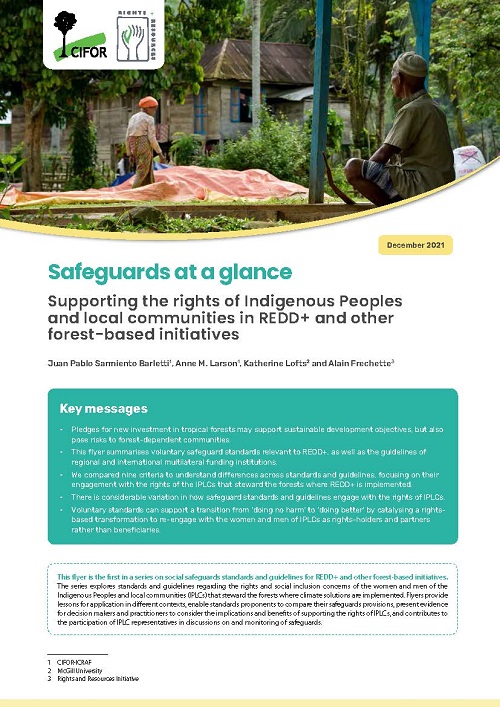Key messages
- Pledges for new investment in tropical forests may support sustainable development objectives, but also pose risks to forest-dependent communities.
- This flyer summarises voluntary safeguard standards relevant to REDD+, as well as the guidelines of regional and international multilateral funding institutions.
- We compared nine criteria to understand differences across standards and guidelines, focusing on their engagement with the rights of the IPLCs that steward the forests where REDD+ is implemented.
- There is considerable variation in how safeguard standards and guidelines engage with the rights of IPLCs.
- Voluntary standards can support a transition from ‘doing no harm’ to ‘doing better’ by catalysing a rights-based transformation to re-engage with the women and men of IPLCs as rights-holders and partners rather than beneficiaries.
Download:
Ano de publicação
2021
Autores
Sarmiento Barletti, J.P.; Larson, A.M.; Lofts, K.; Frechette, A.
Idioma
English
Palavras-chave
indigenous people, local community, sustainable development, development policy, standards, community forestry, climate change, mitigation



















